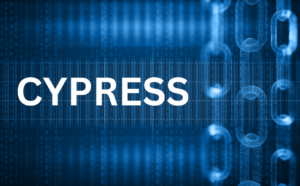Artificial Intelligence (AI) is making a significant impact across various industries, but its influence is particularly transformative in healthcare. AI is improving patient outcomes, speeding up drug discovery, and changing the way we tackle medical challenges. This article will examine how AI is reshaping healthcare, particularly in areas like diagnosis, personalized treatment, and drug development.
AI in Diagnostics: Early Detection Saves Lives
AI’s ability to assist in diagnostics is one of its most promising applications. Early identification of diseases such as cancer, diabetes, and heart conditions can drastically improve treatment success rates and save lives. AI-powered diagnostic tools analyze medical data, such as patient histories, images, and genetic information, to identify patterns that may be overlooked by human doctors.
- Medical Imaging AI is revolutionizing medical imaging by using deep learning algorithms to interpret X-rays, CT scans, and MRIs with remarkable precision. Studies show that AI can sometimes rival or even exceed human radiologists in detecting conditions like breast and lung cancer early. AI tools such as IBM Watson Health and Google’s DeepMind are enhancing diagnostic accuracy, offering second opinions that help doctors make quicker and more reliable diagnoses.
- Predictive Analytics for Disease Risk AI is also advancing predictive analytics, enabling doctors to assess the likelihood of a patient developing certain conditions. By analyzing large datasets from electronic health records, AI algorithms can predict disease progression and suggest preventive actions. This is particularly beneficial in managing chronic diseases like diabetes, where early intervention can prevent severe complications.
Personalized Medicine: Customizing Treatments for Individuals
AI is playing a vital role in the field of personalized medicine, enabling more targeted and effective treatments. By analyzing genetic data, AI helps doctors create treatment plans tailored to each patient’s unique needs.
- Genomic Data Analysis AI is speeding up the analysis of genomic data, helping to identify genetic mutations and predict their impact on a patient’s health. This has led to the development of more precise treatments, particularly in cancer care, where therapies can be designed based on a patient’s genetic profile. AI is also expanding our understanding of genetic predispositions to various diseases, opening new opportunities for prevention and treatment.
- Precision Drug Dosing AI can help determine the optimal drug dosage for individual patients, reducing the risk of underdosing or overdosing. By analyzing factors such as age, weight, metabolism, and genetic makeup, AI algorithms can suggest the most effective treatment plan, ensuring patients receive the right drug in the correct amount.
AI in Drug Discovery: Speeding Up Development
AI is transforming the traditionally slow and expensive drug discovery process. It accelerates the identification of promising drug candidates, conducts simulations, and even predicts side effects before clinical trials begin.
- Drug Repurposing AI is also used to repurpose existing drugs for new diseases. By analyzing vast amounts of data, AI can identify medications that may work for conditions they were not originally designed to treat. This approach was particularly useful during the COVID-19 pandemic, where AI predicted which existing drugs could help combat the virus.
- Predicting Drug Efficacy and Toxicity AI is improving drug testing accuracy. Instead of relying on lengthy clinical trials, AI can simulate how a drug will perform in the body, identify potential side effects, and assess its effectiveness. This approach saves time and reduces the costs associated with drug development, making it an invaluable tool in preclinical research.
- Accelerating Clinical Trials AI is also enhancing clinical trials by optimizing patient recruitment and monitoring. AI algorithms can analyze patient data to select the best candidates for a trial based on medical history, genetic profile, and disease stage. This improves trial success rates and speeds up results. AI tools also monitor patients during trials, identifying adverse reactions or potential issues more quickly.
AI-Powered Health Systems: Streamlining Operations
Beyond diagnostics and treatments, AI is revolutionizing the operational side of healthcare. It’s being used to optimize hospital management, streamline administrative tasks, and improve patient care.
- AI in Patient Scheduling AI is simplifying patient scheduling by predicting no-shows and optimizing appointments based on real-time data. This reduces wait times for patients, ensures more efficient use of healthcare resources, and enhances the patient experience.
- AI Chatbots for Healthcare AI-driven chatbots are helping with patient inquiries, medical advice, and administrative tasks. These tools reduce the workload on healthcare professionals, offer 24/7 assistance, and ensure patients get timely care.
Looking Ahead: The Future of AI in Healthcare
The potential for AI in healthcare is vast. As technology continues to evolve, AI will play an even greater role in diagnosing diseases, developing personalized treatments, and speeding up drug discovery. The integration of AI with technologies like robotics and 3D printing will further revolutionize healthcare delivery.
However, widespread adoption of AI in healthcare brings challenges. Issues like data privacy, the need for explainable AI, and preventing biases in AI models are crucial to address. As AI becomes more integrated into healthcare systems, it’s essential to establish ethical guidelines and regulatory frameworks to ensure patient safety and trust.
In conclusion, AI is not just a tool but a transformative force that is reshaping the way we approach medicine. From improving diagnostics to accelerating drug discovery, AI promises to make healthcare more efficient, effective, and personalized. As we continue to explore its potential, one thing is certain: AI will play a central role in the future of healthcare.





